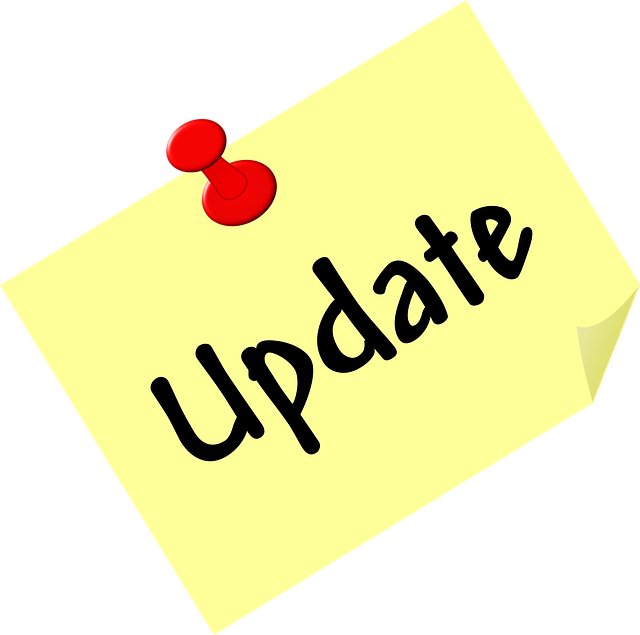System administrators are one of the unsung heroes in a smooth relationship between a behavioral health facility and their EHR vendor.
We at Sigmund have had the pleasure of working with some fantastic admins. After countless implementations and training periods, it is clear that an effective admin can have a huge positive impact on these processes for both parties.
Talented admins come in many different forms, but they all possess a similar set of core skills that help them excel in their role:
- Tech-Savvy
- Strong Communicator
- Proactive Nature
- Ability to understand the needs of multiple departments
If you observe these skills in one of your employees, chances are they would, or already do, make a great admin.
Tech-Savvy
System administrators must have some degree of technological prowess. Although they do not need to be absolute experts on IT and EHR systems, the more knowledgeable an admin has, the better.
Often times, admins receive direct software training from an EHR vendor during the initial implementation process. Admins are also notified and trained on software updates after production roll-out.
Admins need to be able to absorb and act on the information that their trainers provide them. Sometimes, this information can be rather technical or confusing.
Admins act as the mediator between their facility and the EHR vendor for new information about the platform. If an admin lacks tech awareness, it can lead to confusion and bad EHR habits at their organization.

Strong Communicator
System administrators are often involved in internal training at a behavioral health center.
An admin should feel comfortable relaying their team’s questions and concerns to the EHR vendor. That is only half of an admin’s job, though.
Often times, an admin is also responsible for coordinating the training for their facility.
Here, tech-savviness and strong interpersonal skills are crucial. It is one thing to understand the software aspects when a professional software trainer is presenting it to you. It is another thing to explain how an EHR works to a diverse staff with varying levels of comfort with technology.
An admin can have different obligations based on the infrastructure and process of their facility.
For example, after receiving training from the EHR vendor, they may provide their internal training department with all the necessary information to bring staff up to speed on the EHR. In other cases, the admin may train the majority of staff directly.
No matter the scenario, though, an effective admin is a clear communicator. They bridge the training gap between external instruction and internal adoption. Admins should be able to collaborate productively with a vendor’s trainers, as well as advocate for their coworker’s concerns.
Proactive Nature
Skilled system administrators never become complacent in their role.
Once an implementation team has completed their tasks, the admin becomes the first line of defense against staff frustrations with the EHR platform. This is especially important when it comes to updates within the EHR.
Unexpected updates to the platform can throw staff off if they are not prepared for it. Not being alerted to changes in function or design can breed frustration among employees.
In most cases, it falls on the admin to notify the proper staff when an EHR releases updates. End-users should be able to rely on their admin to provide them with the necessary instructions to comply with system updates.
It can be common for end-users to blame an EHR for their struggles with software updates if an admin does not prepare them for changes in the system. This can create an unfortunate dislike or mistrust within the EHR platform.
Staff may perceive the platform to be inefficient or subpar when, in reality, their admin did not set them up for success.
EHR vendors often release notes with their software updates that outline and/or explain any changes in the platform. Effective admins remain vigilant in monitoring upcoming changes in their EHR.

Ideally, an admin will inform staff that an update is coming and initiate the training process. Then, admins guide staff through the update and follow up that all employees feel comfortable with the new developments.
System update notes are often very technical in tone, so they may be difficult for less technically inclined staff to understand.
A talented admin takes their staff’s technological literacy into account. A truly proactive admin will translate complex instructions from the EHR vendor into words that all staff can digest and act on.
Understanding the Needs of Multiple Departments
As the mediator between an EHR vendor training team and their facility, an admin needs to be able to balance the needs of multiple parties. They may have to juggle the preferences of the EHR trainers, upper management at their facility, and end-users on their staff.
It can be difficult to navigate such potentially disparate interests. An effective admin respects each group’s mindset and daily experience in their EHR environment.
An EHR vendor will be most concerned that their platform is being used properly, in a way that optimizes its functionality. Sometimes, general users may not approve of a vendor’s proposed course of action. In these cases, an admin needs to be able to determine if staff dissatisfaction is warranted or not.
Admins should feel confident enforcing the adoption of certain features that general staff does not support if it will improve processes in the long run. On the other hand, an admin should also have a sense of when a given EHR feature threatens to considerably disrupt their staff’s process. The admin should also feel confident going to the vendor’s trainers with concerns and collaborating on a resolution.
Upper management is sometimes concerned with the organizational or financial implications of an EHR as much as they are with its functional capabilities. An admin should pursue a positive and honest relationship with the decision-makers at their facility. As a result, they can go to bat for necessary changes in the EHR based on conversations with the vendor or staff.
Imagine a scenario where an admin believes that the facility’s staff needs more EHR training. Upper management disagrees, as they have already spent a lot of resources on training. They may not see how additional training would accomplish anything that the initial training period did not. An admin must be able to communicate the reasons why paying for more training will assist staff and improve current deficiencies.
The general users at a facility are the ones on the EHR front lines. They use the platform all day, every day to complete their tasks. They may feel unheard by the EHR vendor or upper management. An admin must nurture a relationship with end-users so that they feel heard and supported. Effective admins are consistently advocating for the needs and concerns of their end-users, ensuring their needs are being met.
.jpeg)
System Administrators Empowered By AURA
Admins are a huge part of what makes AURA, Sigmund’s enterprise software solution, such a powerful EHR platform.
The AURA we know today would not have been possible without insightful and valuable feedback from great system administrators over the years.
We understand the importance of the admin job and respect how challenging that role can be at times.
As a result, we strive to make AURA and the Sigmund process as admin-friendly as possible. By providing admins with excellent customer service, they can leverage that support into successes at their facility.
Whether it is for the initial implementation or subsequent system updates, the Sigmund team makes sure that admins have all the information they need to prepare their staff.
To do this, we have developed a powerful Customer Portal. A few ways our customer portal optimally serves the needs of an admin:
- Option for direct communication with high-level employees
- Regularly upload relevant training materials (videos, presentations, instructions)
- Option to grant all users access to all training materials
Check out this quick video of Patti Webb, the Director of Access and Information Management at the Center for Addiction Treatment. Patti describes how Sigmund prepared her staff to adopt AURA during implementation, as well as her experience collaborating with Sigmund employees.
Want to learn more about how AURA empowers admins? Talk to one of our knowledgeable team members today!


